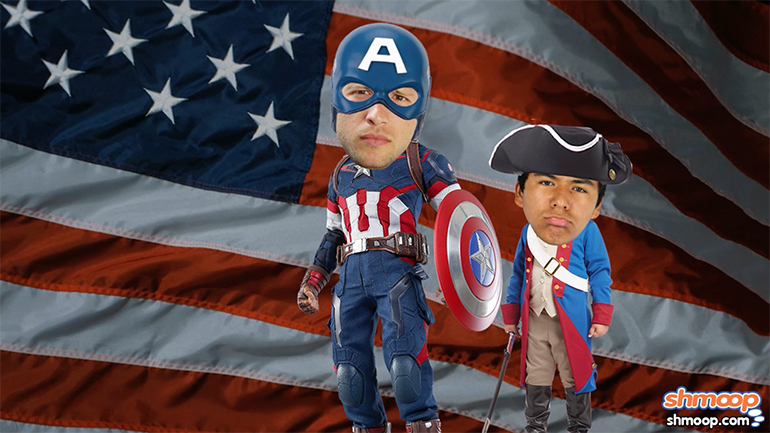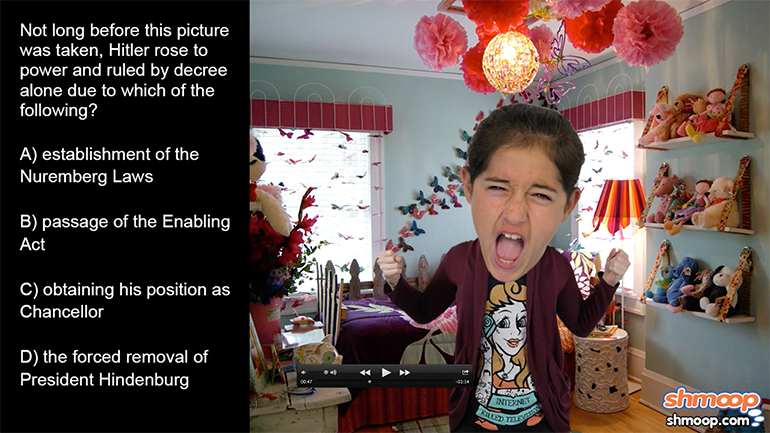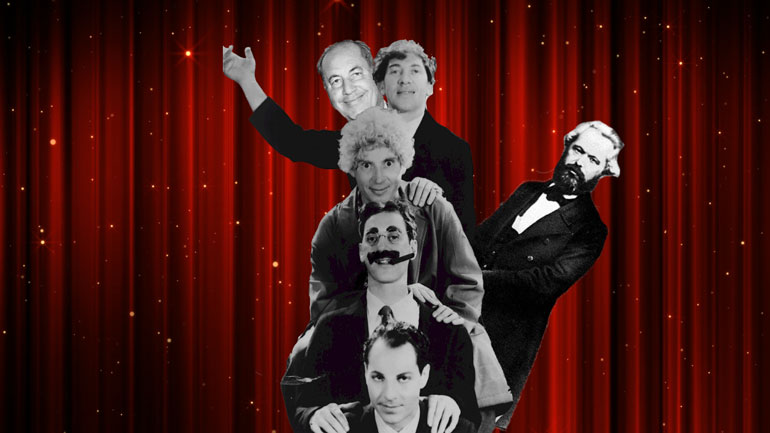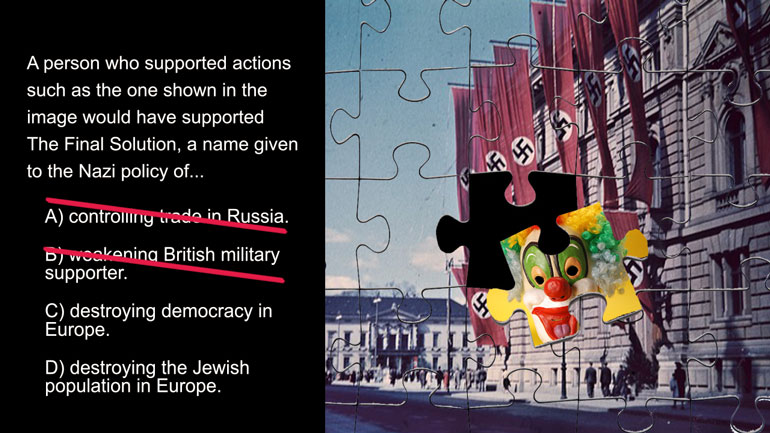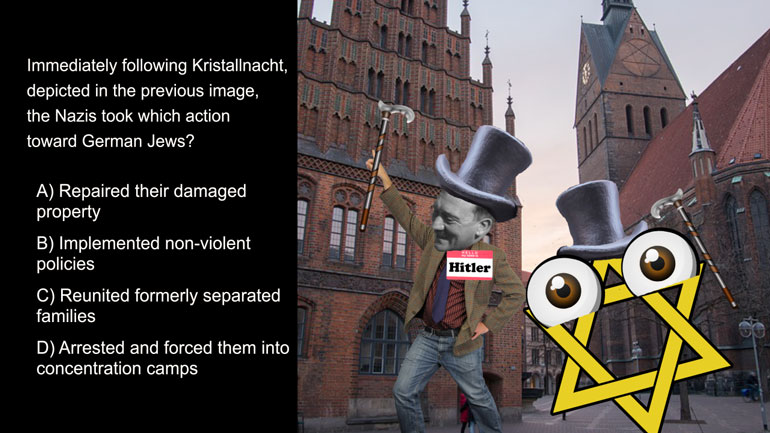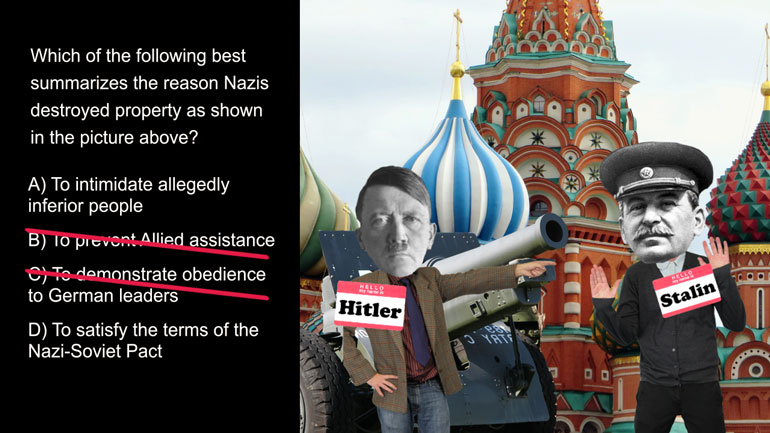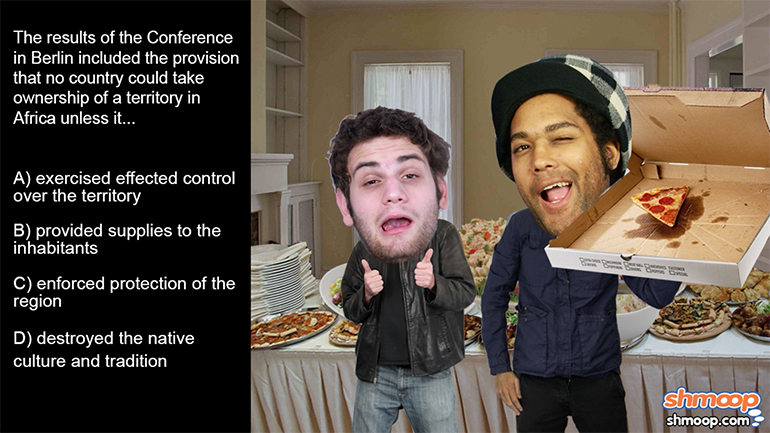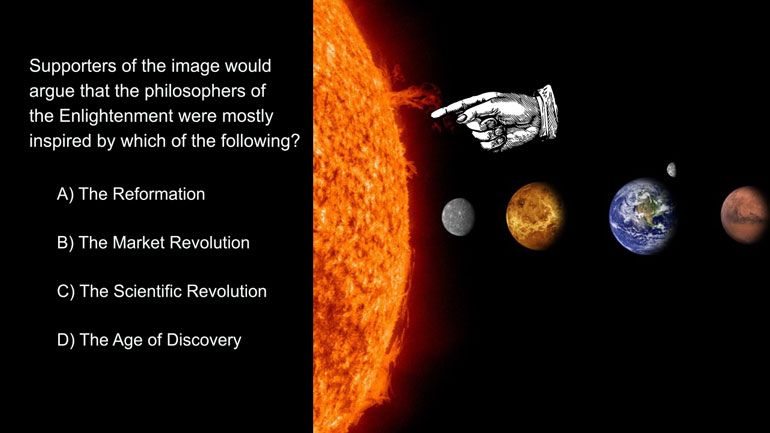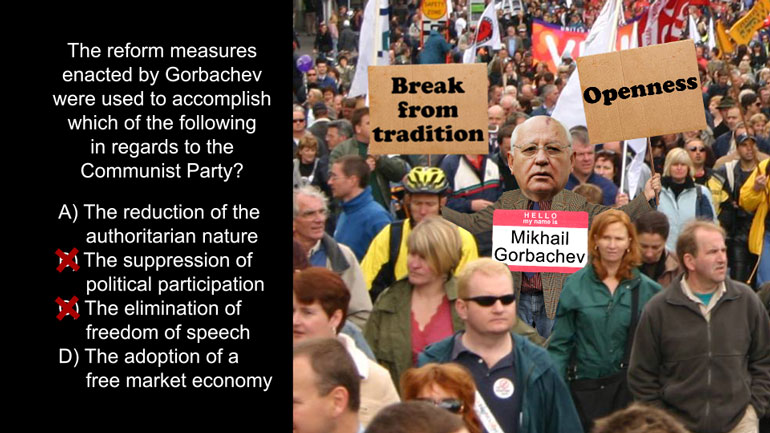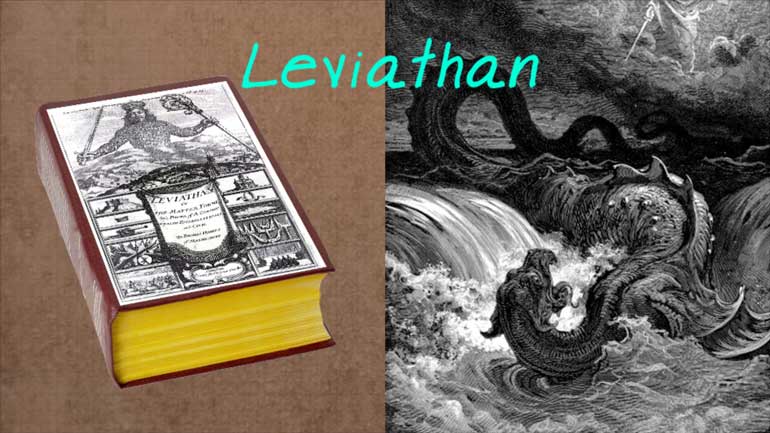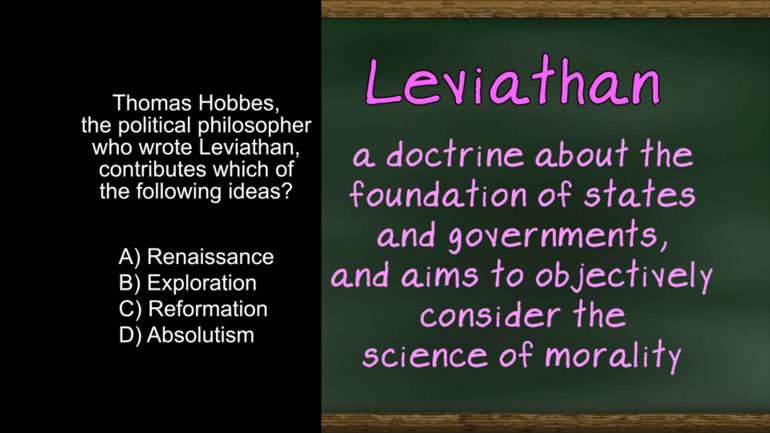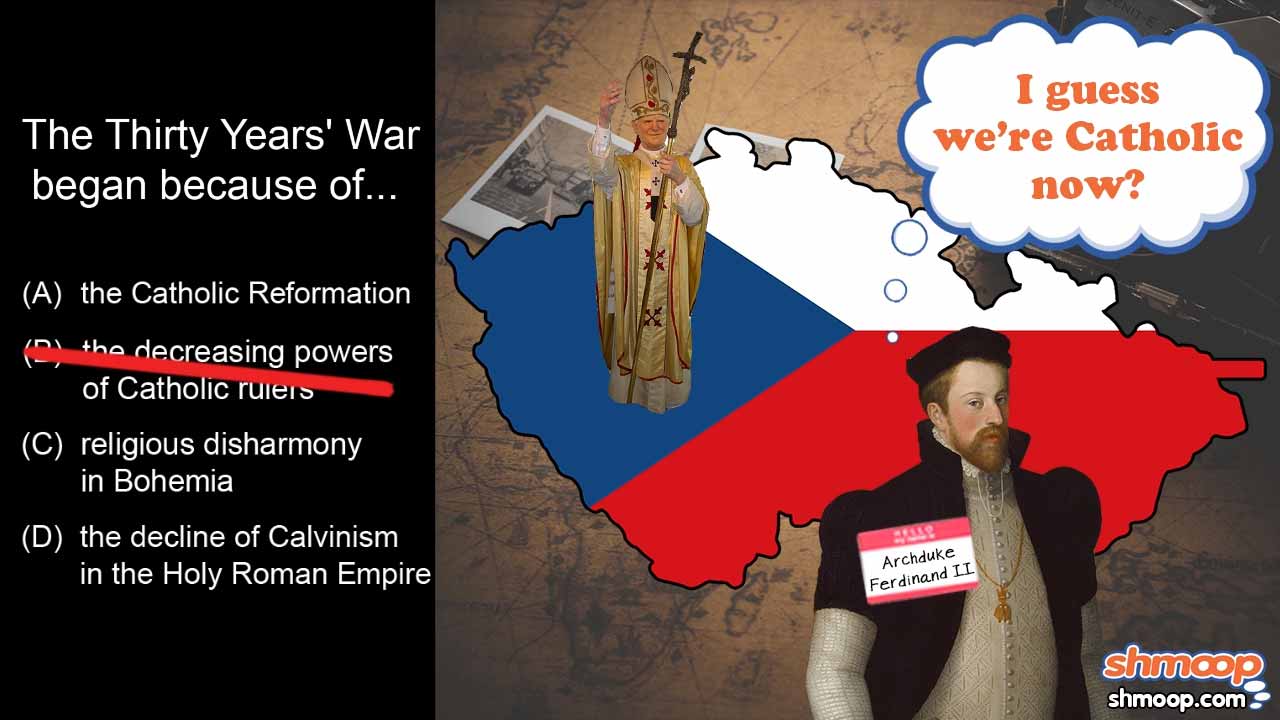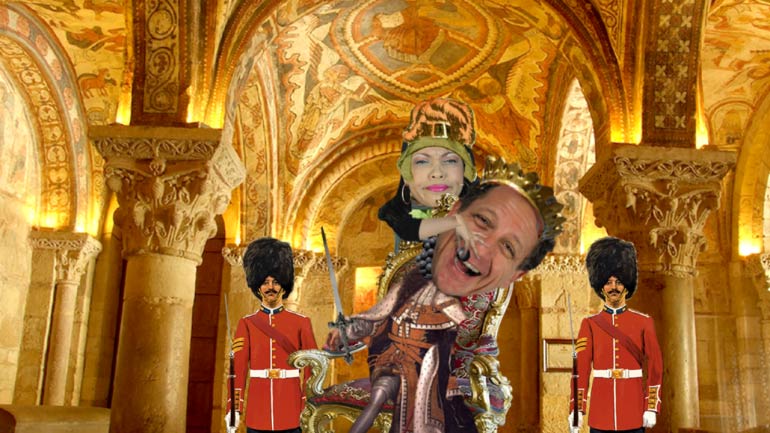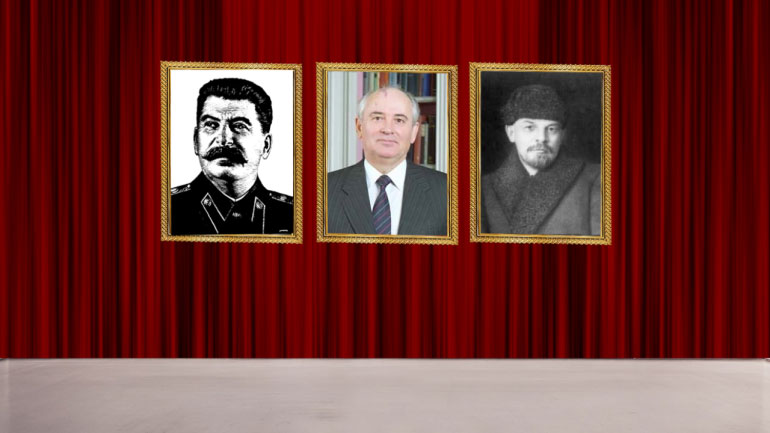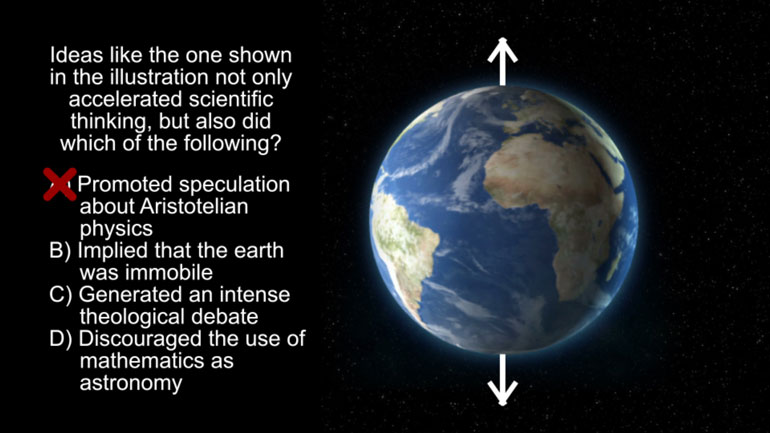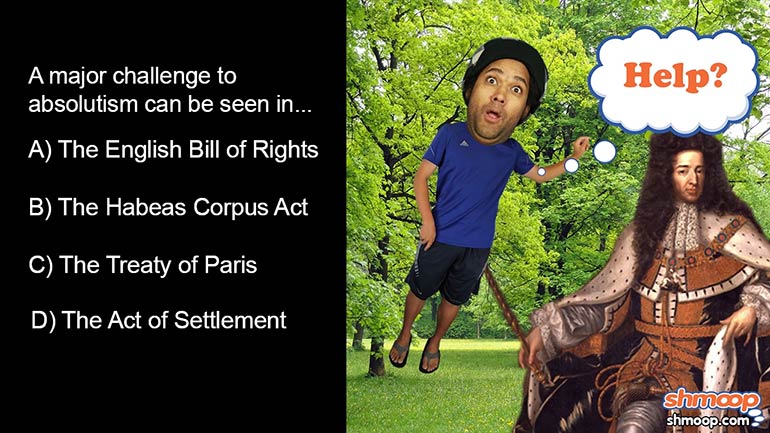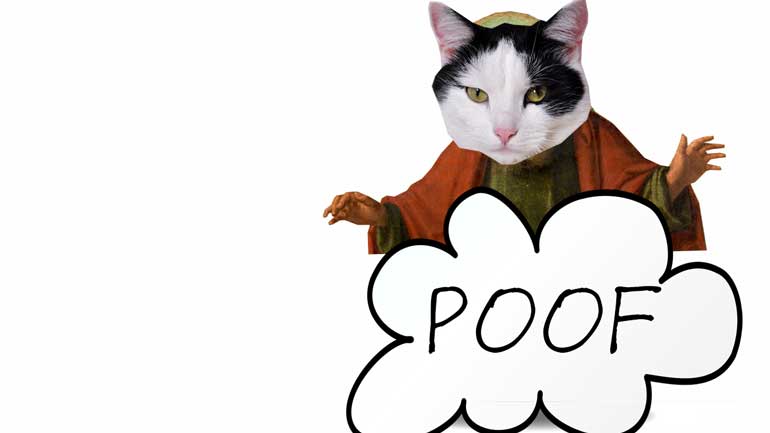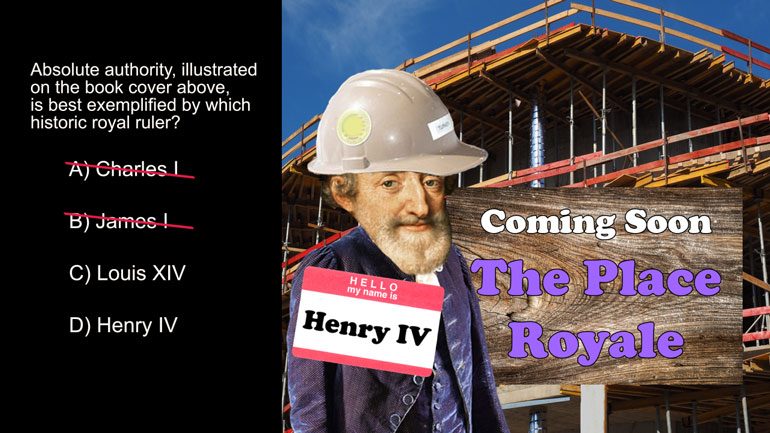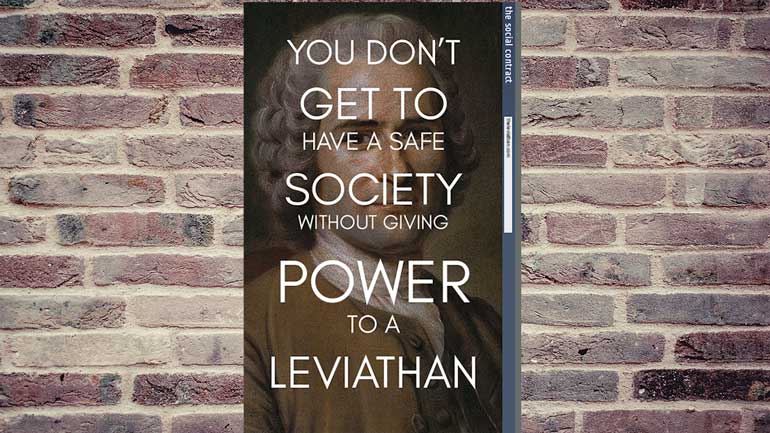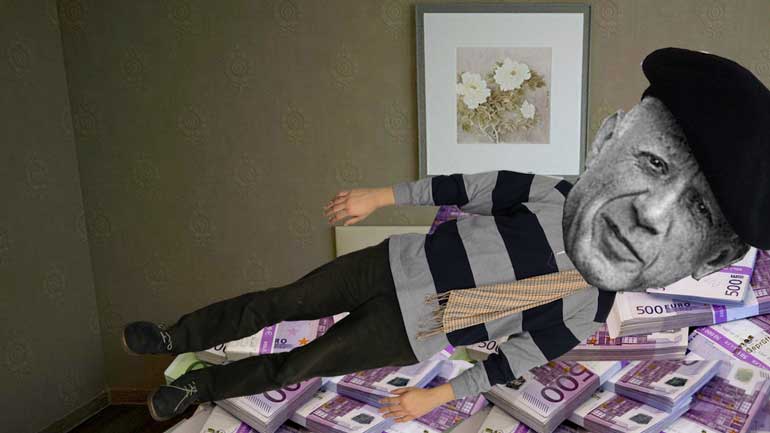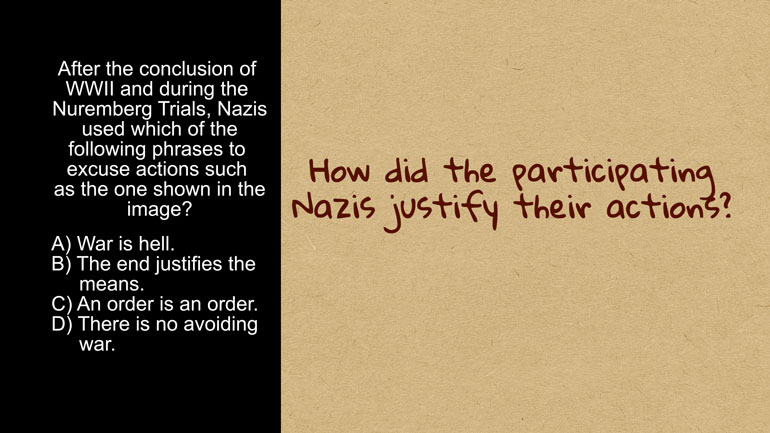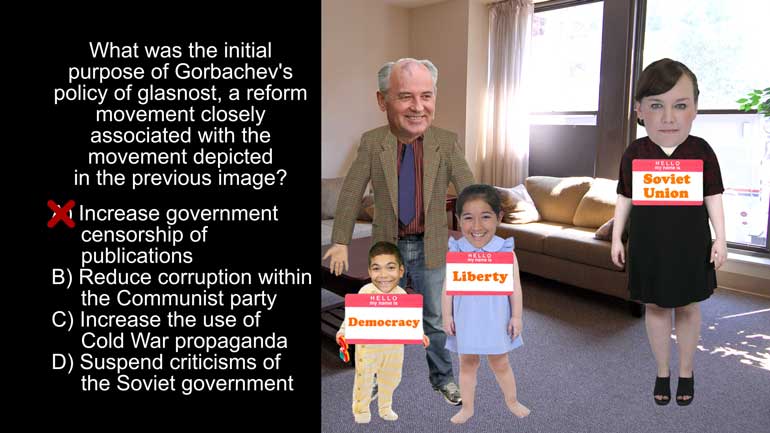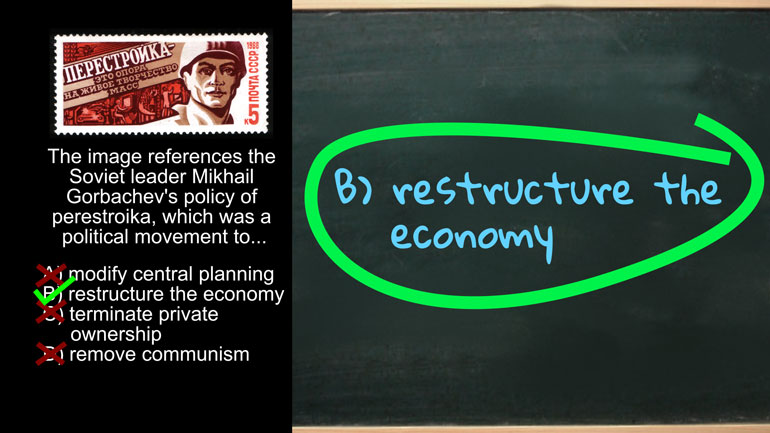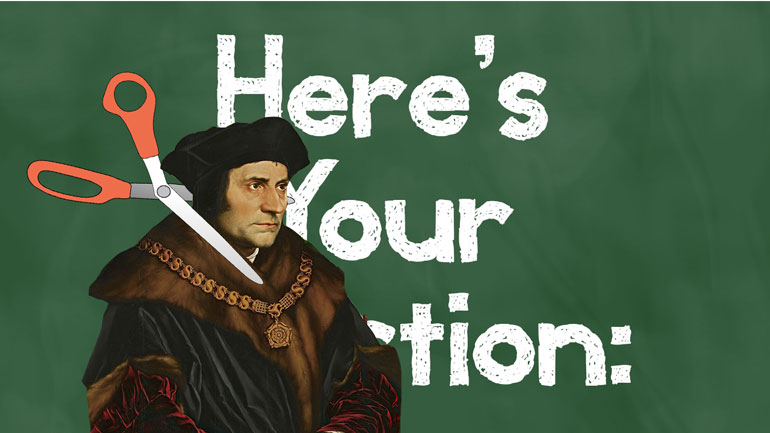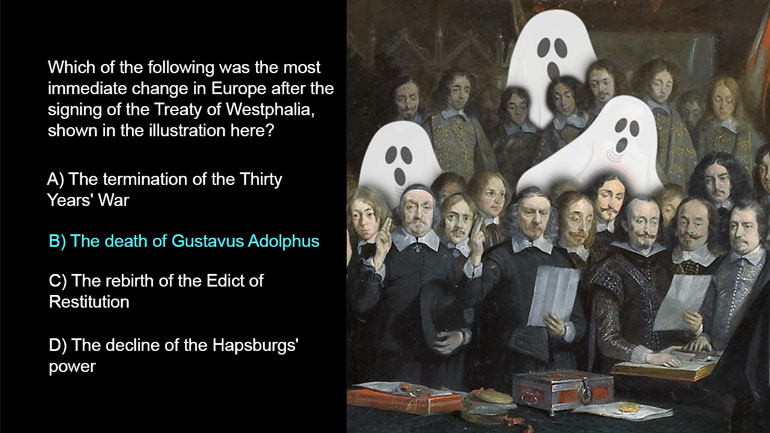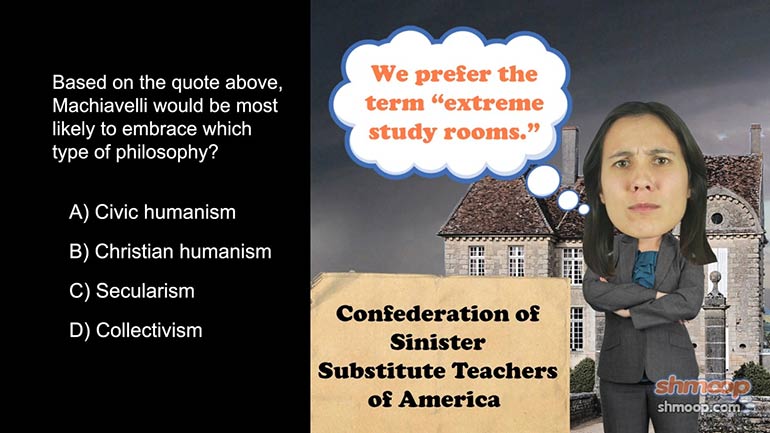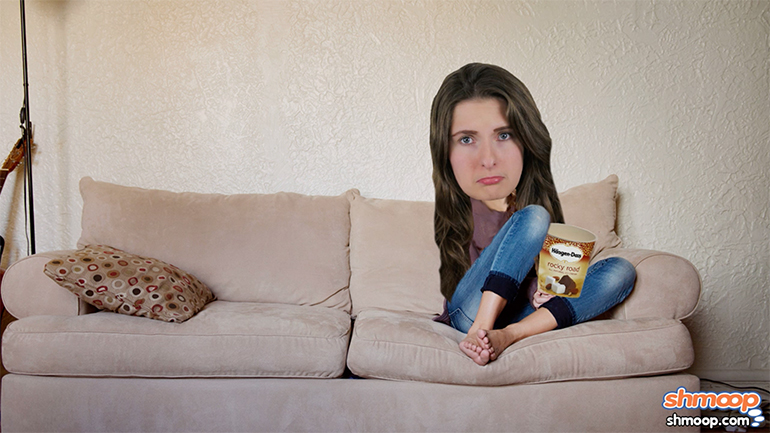ShmoopTube
Where Monty Python meets your 10th grade teacher.
Search Thousands of Shmoop Videos
AP European History Videos 37 videos
AP European History Period 1: 1450-1648 Drill 2, Problem 1. As a result of the meeting in the image, which of the following occurred?
AP European History Period 3: 1815-1914 Drill 2, Period 1, Les Demoiselles d'Avignon represented the beginning of which of the following art m...
AP European History Period 3: 1815-1914 Drill 2, Problem 4. Paintings like the one depicted above were a direct reflection of what?
AP European History 2.4 Period 4: 1914-Present 33 Views
Share It!
Description:
AP European History 2.4 Period 4: 1914-Present. The reform measures enacted by Gorbachev were used to accomplish which of the following in regards to the Communist Party?
Transcript
- 00:04
and here's your shmoop du jour brought to you by the free market [People shopping at a market]
- 00:06
like a magical Safeway where everything is free and you don't get chased out of
- 00:11
the store for taking like 20 boxes of the Captain Crunch without paying [Man runs away from store with Captain Crunch boxes]
- 00:14
alright take a look at this image....
- 00:18
alright here's today's question the reform measures enacted by Gorbachev
Full Transcript
- 00:23
were used to accomplish which of a following in regards to the Communist
- 00:27
Party and here your potential answers....
- 00:32
well Gorbachev bless his heart truly believed he could fix a Communist Party [Gorbachev giving a speech]
- 00:37
in Soviet Russia well unfortunately he was a bit of a bumbling Dad trying to
- 00:42
fix a leaky faucet about it well meaning but he really should [Gorbachev trying to fix a leaky faucet]
- 00:46
have just called the plumber... Gorbachev did a bunch of stuff that
- 00:49
really did seem good on paper he encouraged political participation and
- 00:53
even relaxed policies of censorship in an effort to allow freedom of speech and
- 00:57
expression and while he supported openness and a break from tradition he [Gorbachev holding signs for break from tradition and openness]
- 01:01
didn't go quite as far as adopting a capitalist economy because you know that
- 01:05
whole communism thing yeah he was still committed to it most importantly
- 01:09
Gorbachev tried to reduce the overall authoritarian nature of the government [People protesting]
- 01:13
through something called Glasnost - a measure that aimed to produce
- 01:17
transparency in the Soviet government so A is the correct answer
- 01:22
As you might have figured out by now because of the whole there's no longer
- 01:26
a Soviet Union thing Gorbachev's well meaning policies didn't
- 01:29
exactly work why? well unfortunately transparency is only a thing when you [Man showering and curtain is drawn back]
- 01:34
have nothing to hide if you're just hanging out watching some TV why not
- 01:38
crack open a window but if you're stealing that TV then having a wide-open [Man stealing a TV]
- 01:44
window it might not be the smartest idea...
Related Videos
AP European History Period 1: 1450-1648 Drill 2, Problem 1. As a result of the meeting in the image, which of the following occurred?
AP European History Period 3: 1815-1914 Drill 2, Period 1, Les Demoiselles d'Avignon represented the beginning of which of the following art m...
AP European History Period 3: 1815-1914 Drill 2, Problem 4. Paintings like the one depicted above were a direct reflection of what?
AP European History 1.2 Period 4: 1914-Present Not long before this picture was taken, Hitler rose to power and ruled by decree alone due to which...
AP European History 1.4 Period 3: 1815-1914. As evidenced through the passage above, Karl Marx was a passionate leader and is considered the father...


